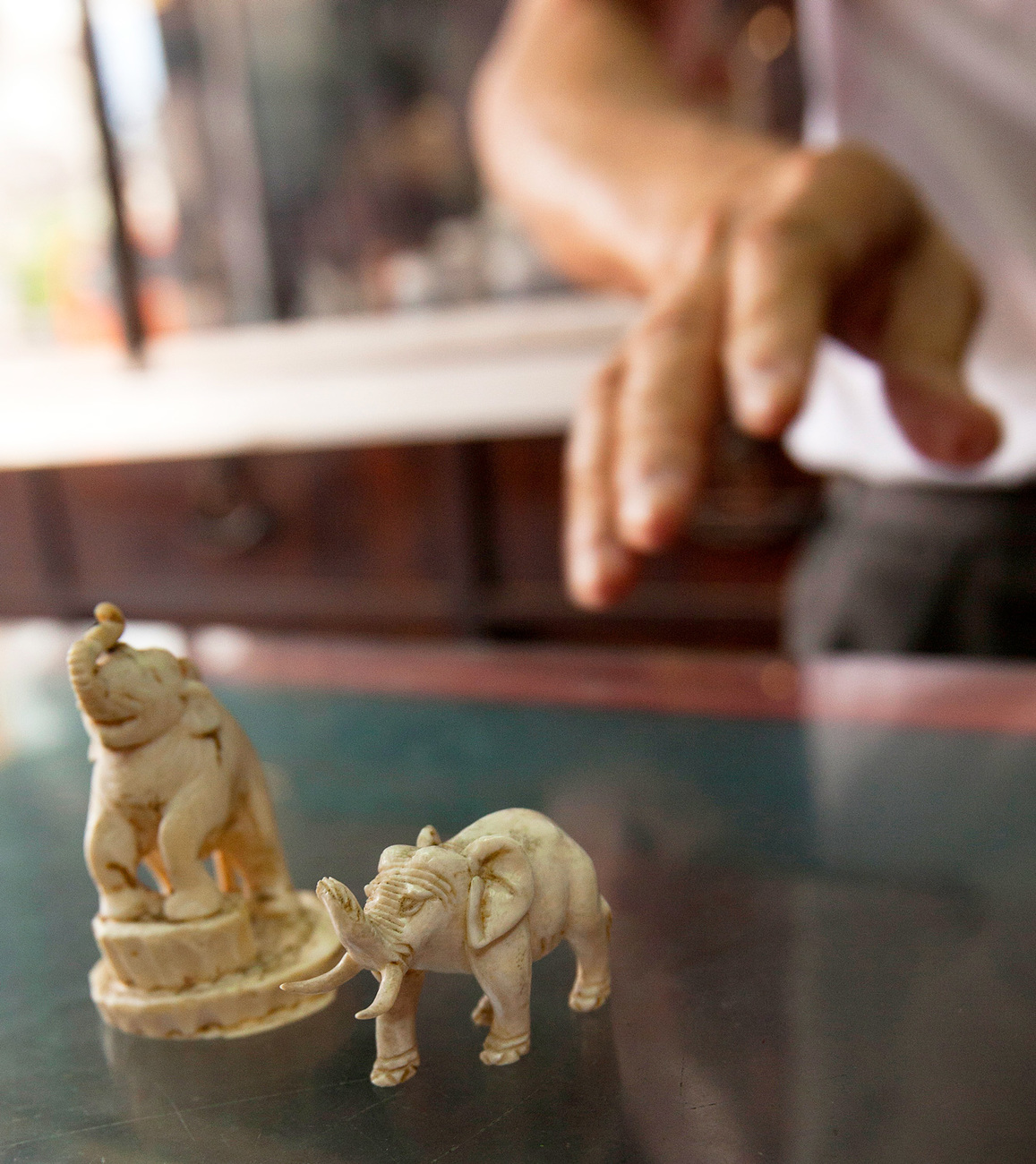Wildlife Crime Prevention - Europe
The European Union is widely considered to be the third largest destination for illegal wildlifeifaw welcomes the Dutch Ivory Ban as a first step
ifaw welcomes the Dutch Ivory Ban as a first step

The International Fund for Animal Welfare (IFAW) congratulates the Dutch government for making progress on the fight against ivory trade, following the announcement today of a Dutch ivory ban on raw ivory, without waiting for possible further actions from the EU. IFAW would however encourage the Dutch government to go even further, as for instance is the case with the stricter ban that was passed in the British Parliament last week, and includes both worked and raw ivory.
“The Dutch raw ivory ban represents what IFAW has been asking for and we celebrate this victory,” says Joep van Mierlo, IFAW Director for The Netherlands/Europe. “However, trade in so-called worked ivory will still be allowed in The Netherlands and this is a regrettable loophole.”
The Dutch ivory ban only accounts for raw ivory and not new, worked ivory items. IFAW proposes a full ban on trade in both raw and worked or carved ivory, with a few exemptions, such as antiquities prior to 1947 and music instruments.
“Globally the EU is one of the biggest exporters of ivory and The Netherlands plays a key role. Worked ivory is exported to Asia in large amounts. This trade in ivory sculptures and bracelets stimulates the demand in Asia, which leads to the killing of wild elephants,” explains Van Mierlo.
The Netherlands is one of the European countries with a significant role in the trade of ivory from elephants. From 15 January until 15 April 2018, IFAW conducted research into the trade in treated ivory by Dutch auctioneers. In this timeframe, 1.310 tenders with ivory from elephants were discovered and 88 percent of the tenders via offline Dutch auctioneers did not have the correct papers.
Earlier this year, IFAW unveiled how more than half of the ivory offered by Dutch auctioneers (including online auctioneer Catawiki) violate the EU regulation for ivory trade due to incorrect paper work, unsound dating, and sometimes falsified origins. Catawiki responded swiftly and now is engaged in a constructive dialogue with IFAW.
IFAW emphasizes the importance of the growing online trade in both raw ivory and ivory products. Earlier this year, IFAW published the report Disrupt: Wildlife Cybercrime – Uncovering the scale of online wildlife trade. During a 6-week-research-project in France, Germany, Russia and the United Kingdom in 2017, a team of IFAW specialists and researchers found thousands of online advertisements on the trade of species that are vulnerable and under extinction threat (the animals themselves and the treated products). The researchers counted 5.381 advertisements from 106 web shops, auction sites en social media platforms. 11.772 animals and treated products were registered, with a total market value of USD 3.942.329 million.
“Every year, more than 20.000 elephants are killed in Africa. The elephant population is at an absolute low. A strong position of the EU is essential for the chances of survival of the biggest living land mammal. We hope that the newly announced Dutch ban could steer the EU towards a stronger position,” says Van Mierlo.
Note to editors
Current European regulation is clear: worked ivory dating from before 1947 is officially considered antique and may be traded, if there is proof to support the claim, via for example an old purchase ticket. For ivory dating between 1947 and 1990, an EU certificate is required. All trade in ivory since 1990 is strictly forbidden. The issues of certificates are however vulnerable to fraud and therefore to criminal intentions.
For more information:
Martijn Lodewijkx (Press Officer), +31 6 55 715 880
Joep van Mierlo (Spokesperson, Director IFAW Netherlands/Europe), +31 6 57 31 12 400, jvanmierlo@ifaw.org
Related content
Every problem has a solution, every solution needs support.
The problems we face are urgent, complicated, and resistant to change. Real solutions demand creativity, hard work, and involvement from people like you.